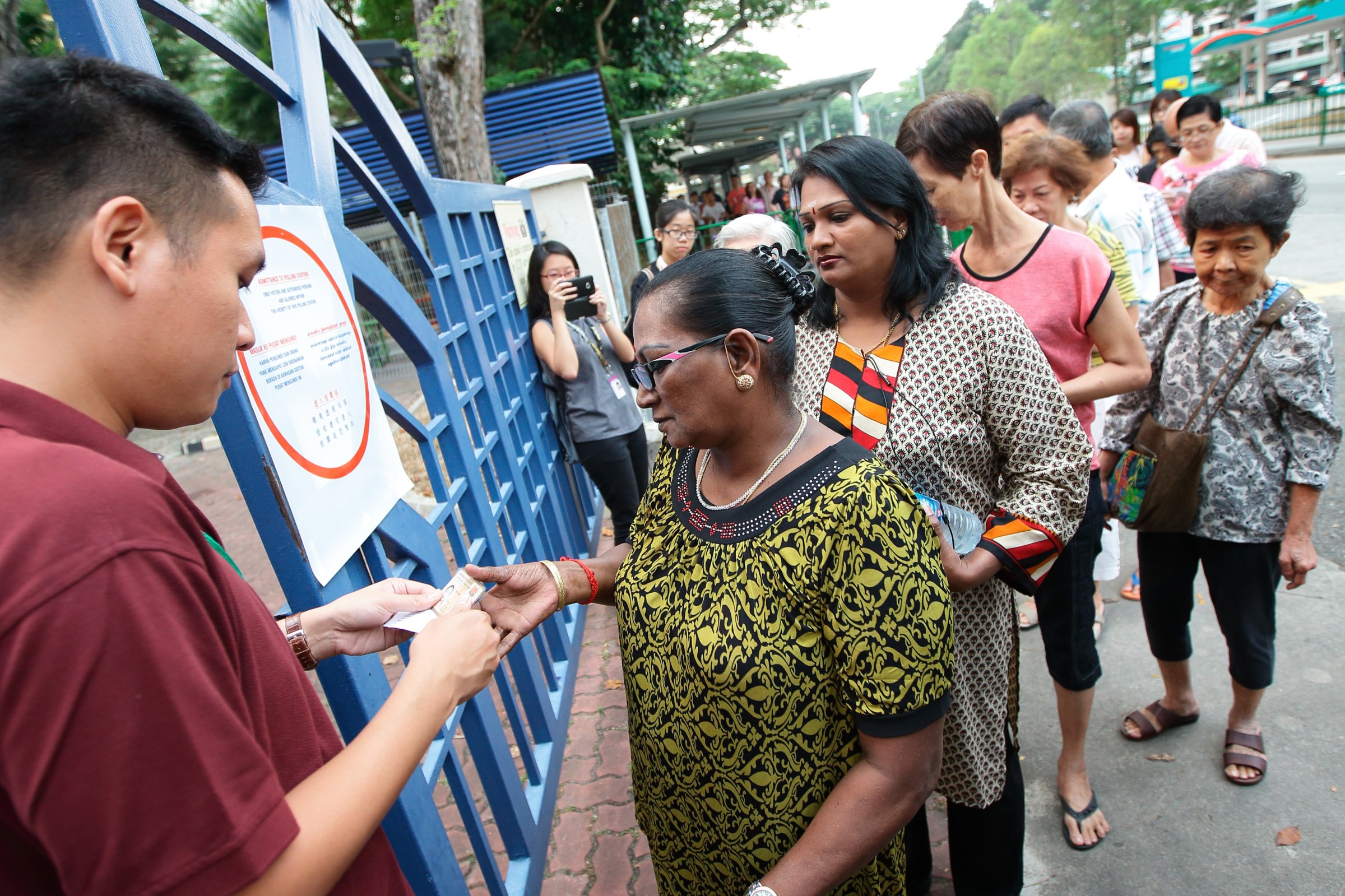
At 8 a.m. Friday morning local time, 2.5 million Singaporeans began casting their ballots in a parliamentary election that the ruling party is all but certain to win. After all, the People’s Action Party (PAP) has won every election since independence in 1965. Though there won’t be a tectonic shift in the government, five characteristics of this election reveal new challenges for the city-state.
1. Auspicious timing
Prime Minister and PAP leader Lee Hsien Loong called this snap election more than a year before the official polling deadline. The earlier date means the election come after two events that stirred up a wave of patriotism. Lee Kuan Yew, Singapore’s founding father and the current Prime Minister’s actual father, died on March 23; Lee Sr. is admired by many Singaporeans as singularly responsible for the city-state’s success. Then, on Aug. 9, Singapore’s celebrated its 50th anniversary with parades that touted a half-century of unparalleled growth. Both milestones should boost the PAP.
2. Growing opposition
Every Singaporean voter will receive a ballot with the name of a ruling and opposition party member this year and each of the 89 parliamentary seats is contested. That may not sound like much, but as recently as 2006 only 47 of the 84 possible seats in that election were challenged. (That election was the first time since 1988 that the PAP didn’t walk into power on nomination day.) In the face of this unprecedented competition, the PAP will try to fare better than it did in 2011 when it lost six of the 87 contested seats to the Workers’ Party and secured only 60.1% of the popular vote — its worst result ever.
3. Foreign pressure
A rapid influx of foreigners has frustrated many Singaporeans, who complain that wealthy immigrants have pushed up the cost of living while cheap laborers have lowered wages. In 2014, just 61% of the population were citizens, according to government statistics. The PAP has responded by raising minimum salaries for certain categories of work done by foreigners and making it harder for expatriates to get permanent residency. But the solutions are not easy. The open immigration policy has been credited with driving Singapore’s wealth over the past decade. It now has the world’s seventh-highest GDP per capita, ahead of the U.S., according to the World Bank. Striking the right balance between citizens and expatriates will remain tricky for the PAP. The Ministry of Trade and Industry just narrowed the economy’s growth forecast in 2015 to 2%-2.5%, down from a former projected maximum of 4%.
4. Squeezing it all in
Singapore is perhaps the most efficiently run city in the world. But its citizens are not easy to please. For one thing, the electorate takes its metro very seriously. So seriously that Blackbox Research, a market-research group, measured a 4% drop in government satisfaction after a major subway breakdown in July. The concern about trains points to a bigger problem facing Singapore: its small space. Singapore is the world’s third most densely populated place in the world (after Macau and Monaco). How to use every inch of the island’s 277 sq mi will only prove more challenging as the population grows.
5. Loosening control
Opinion polls may be common in the U.S., but publishing survey results during the campaign period or conducting exit interviews in Singapore is punishable by up to a year in jail and a fine of about $1,000. This year the government has approved the public release of a sample count, albeit one managed by the Elections Department. Results of this poll will probably be announced around 10 p.m., just two or three hours before the final numbers are expected to be released.
While the newly permitted poll is just an incremental initiative, it reflects an overall lightening up by the authorities in recent years.
More Must-Reads From TIME
- Dua Lipa Manifested All of This
- Exclusive: Google Workers Revolt Over $1.2 Billion Contract With Israel
- Stop Looking for Your Forever Home
- The Sympathizer Counters 50 Years of Hollywood Vietnam War Narratives
- The Bliss of Seeing the Eclipse From Cleveland
- Hormonal Birth Control Doesn’t Deserve Its Bad Reputation
- The Best TV Shows to Watch on Peacock
- Want Weekly Recs on What to Watch, Read, and More? Sign Up for Worth Your Time
Write to Mark Rivett-Carnac at mark.rivett-carnac@timeasia.com